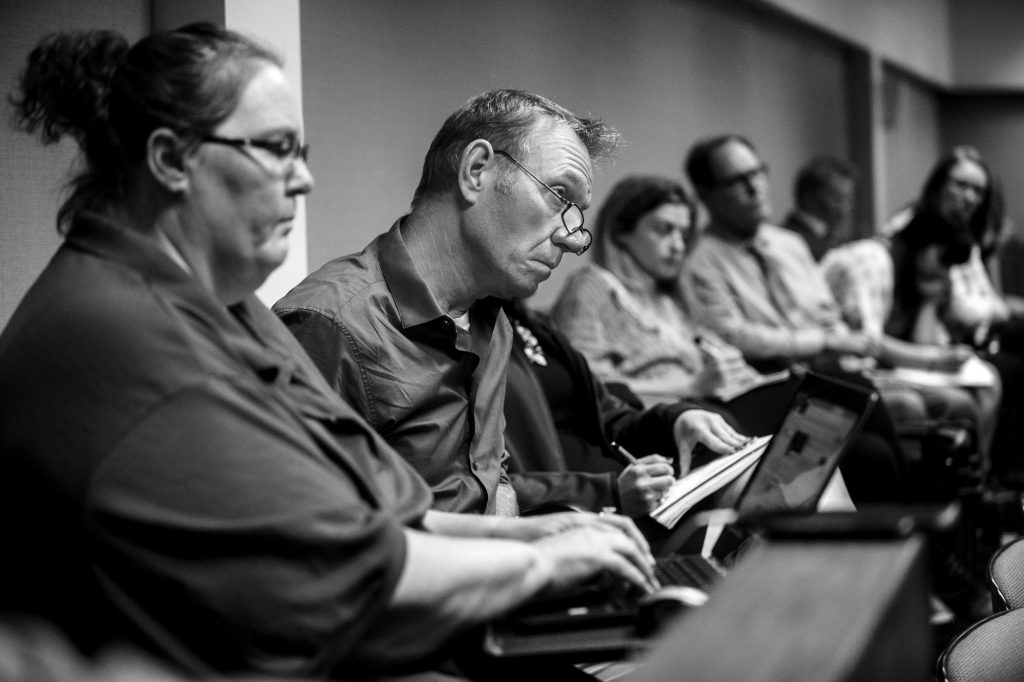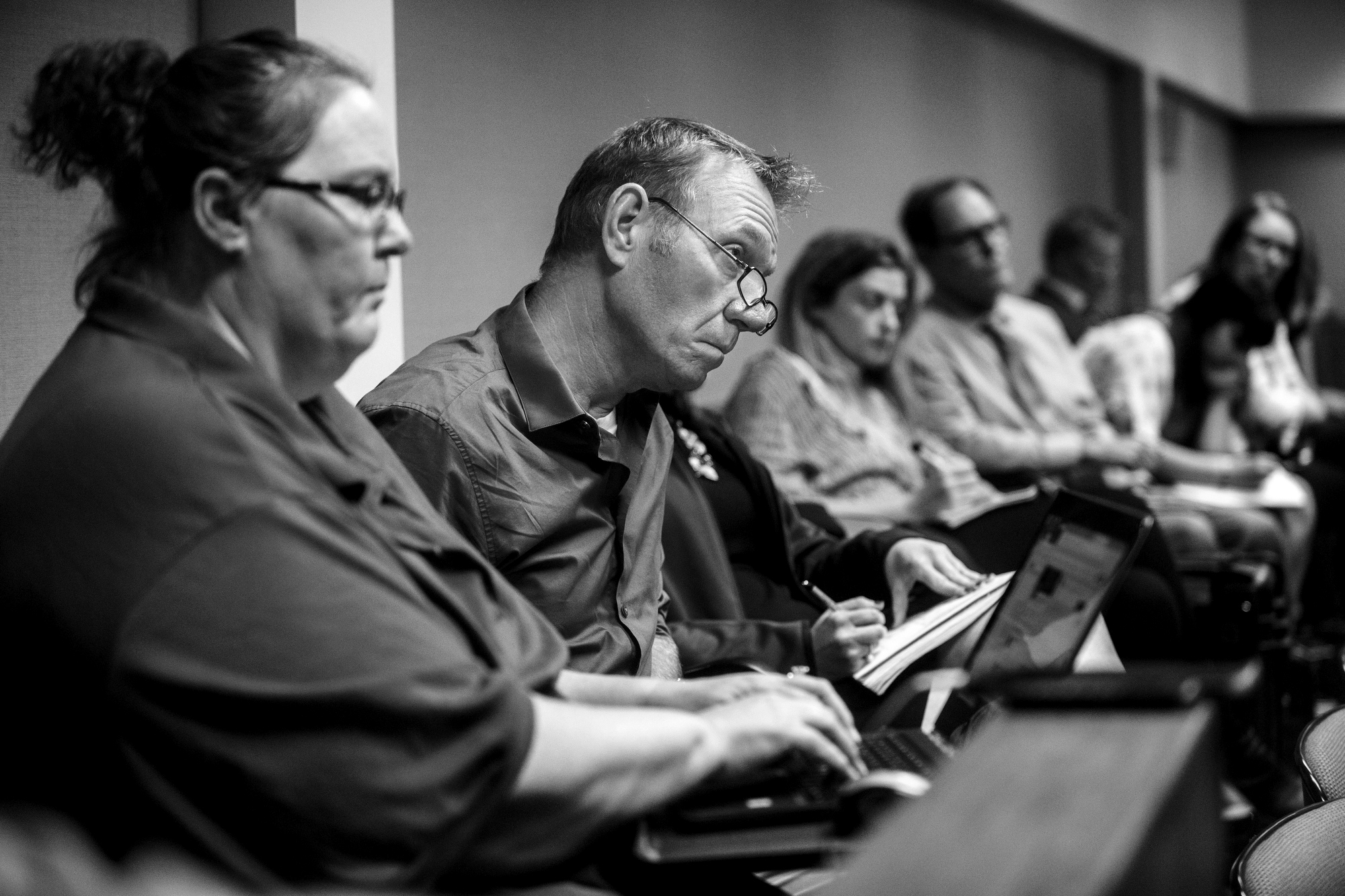Journalist Ron Fonger Reflects On Flint Water Crisis, Five Years Later
Journalist Ron Fonger who reported on the water crisis for The Flint Journal joins host Stephen Henderson to detail his reports for the last 5 years.

One of the key figures in the Flint Water Crisis, journalist Ron Fonger, joins host Stephen Henderson for a discussion about his experience during the crisis. Fonger is a longtime Flint journalist who was on the beat before others even acknowledged it. He has been reporting for The Flint Journal and Mlive.com for more than 20 years.

On April 24, 2014, Flint began using water from the Flint River until the pipeline from Lake Huron could be completed, by May complaints had already started flowing in from residents. When October hit, the Flint General Motors plant refused to use the river water because their car parts started rusting and the city tapped them into a different water line but residents continued to use the same water.
“As an elected official they still had a soap box and a [responsibility] to look at it more critically than they did. It didn’t seem as though they had a good handle on this thing even by the end of 2014” says Ron Fonger.
It wouldn’t be until 2015 that everything was revealed. On January 4th, the city announced that Flint’s water contains a high level of trihalomethanes, a disinfectant byproduct. This was a violation of the Safe Drinking Water Act but officials reassured residents with normal immune systems would have nothing to worry about. However in April, Flint told its residents it flunked the Safe Drinking Water Act again because of the disinfectants.
“It was critical, if not the critical change in the conversation when Dr. Mona released that the lead levels tripled in children in Flint areas. When she did that it was as though the last wall of resistance broke down in regards to switching to the Flint Water,” says Fonger.
In the five years since the Flint Water Crisis first broke, Fonger describes how he has been affected and how he has continued reporting on the story:
“When you do see people who are upset to the point of breaking down in tears and people who have been exposed to dangerous levels of lead due to decisions that were made that were poorly thought out that does have an affect on me. I approach that by setting it to the side and trying to get to the bottom of it,” he says.
In response to a listener call about the current pipeline being used in Flint, Fonger says the KWA pipeline went into service about a year ago, but only people who get that water are in the suburbs of Flint. He says that if you come to Flint today you could pick any number of streets and you can see where they are still pulling lead and galvanized steel out of the roads. The lead from the lines can break loose and get into the water. Given that eight criminal charges were dropped by prosecutors two weeks ago, he says it’s been “a mixed bag” of emotions of how residents of Flint have reacted. Some are supportive of the decision but with many there is still angst. They have nine months to bring those charges back.
WDET Book Club
WDET’s 2019 Book Club is hosting a Summer Series featuring her Dr. Mona Hanna Attisha’s book, “What the Eyes Don’t See.” Dr. Attisha is a Flint pediatrician from Hurley Medical, who first brought public attention to the discovery of lead-tainted water, which led to the poisoning of Flint children.
As part of the Book Club, WDET’s Detroit Today is traveling across Southeast Michigan discussing water infrastructure, environmental toxins and the health of waterways. Stephen Henderson is also talking about these issues on the air.
You can join us in that discussion. Read the book and engage with us online, on the radio and at events throughout the region. Here’s how:
Online: Join The WDET Book Club on Facebook where we will post articles and discussion topics throughout the summer. We’ll also invite guests to participate in targeted discussions you can engage in throughout the next couple of months.
On the radioListen to 101.9 WDET! We’ll have interviews and conversations about Flint then and now, and more conversations about water quality, and trust in government during Detroit Today. You can listen to them on the radio, on demand and on the Detroit Today Podcast.
Follow us on Twitter: Follow hashtag Detroit Today where we will tweet our events, our guests and information about issues of safe water in our sinks, streams and lakes..
Events: We will travel to libraries around the region with guests who played a role in the book. They will tell their own stories about their involvement in the Flint water crisis, and we’ll invite local experts to talk about issues affecting our water in each community.
